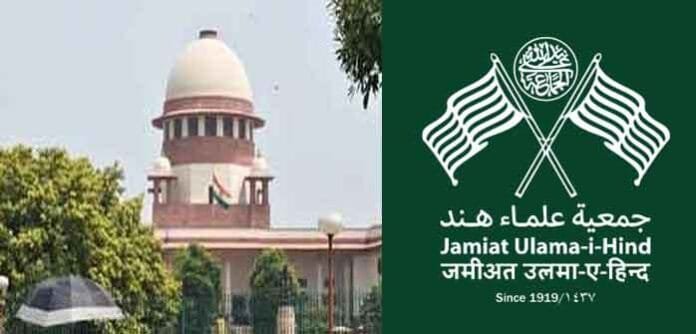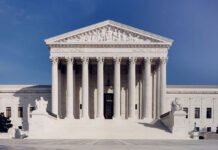INVC NEWS
New Delhi : The Supreme Court of India has taken a firm stance on the controversial bulldozer actions being carried out by various state governments. In a recent hearing, the apex court expressed its strong displeasure over the demolition of homes, particularly in cases where the individuals are merely accused and not yet convicted of any crime. This hard-hitting observation raises significant questions about the legality and morality of such actions, emphasizing the need for a structured legal framework to prevent arbitrary demolitions.
Supreme Court’s Sharp Criticism: A Call for Justice
In a petition hearing involving the Muslim organization Jamiat Ulema-e-Hind, the Supreme Court questioned the legitimacy of demolishing homes based solely on accusations. Justice B.R. Gavai remarked, “How can a house be demolished just because someone is an accused? Even if he is guilty, the house cannot be demolished.” This statement underscores the importance of adhering to the rule of law and protecting the rights of individuals, regardless of their legal standing.
The court further highlighted the inconsistency in the enforcement of laws, noting that even the house of a proven culprit cannot be destroyed without a solid legal basis. This observation is crucial as it points to the potential misuse of power by authorities under the guise of legal action.
Justice Vishwanathan’s Insight: The Need for Comprehensive Guidelines
Justice K.V. Vishwanathan, who was also part of the bench hearing the petition, added a critical perspective by stating that no one should exploit the system’s weaknesses. He emphasized, “The father’s son may be stubborn or disobedient, but if the house is demolished on this basis, then this is not the way.” This analogy serves as a powerful reminder that punitive actions must be proportionate and justifiable.
The bench also stressed the necessity of establishing clear guidelines for demolishing unauthorized buildings across the state. This call for standardized procedures is a step towards ensuring that actions taken by the authorities are not arbitrary but are instead based on a well-defined legal framework that safeguards the rights of citizens.
Central Government’s Defense: Actions Taken Only When Law is Violated
During the hearing, Solicitor General Tushar Mehta, representing the Central Government, defended the bulldozer actions by stating that demolitions are conducted only when the law is violated. He argued, “We take action only when the law is violated.” However, the bench responded with skepticism, pointing out that the numerous complaints suggest otherwise. The judges indicated that there might be instances where the demolitions have been carried out in violation of legal protocols, thus raising concerns about the potential abuse of power.
The Need for National Guidelines: Supreme Court’s Consideration
Acknowledging the need for a unified approach, the Supreme Court hinted at the possibility of issuing nationwide guidelines to regulate the demolition of unauthorized constructions. Justice Gavai stated, “Let the suggestions come. We will issue guidelines at the all-India level.” This move could lead to a significant overhaul in how demolition actions are carried out across the country, ensuring that they are conducted fairly and within the bounds of the law.
The court’s intention to set guidelines reflects a broader concern about the arbitrary use of bulldozer actions, which has become a contentious issue in recent years. By considering a national framework, the Supreme Court aims to create a more consistent and just approach to dealing with unauthorized constructions, which will likely reduce the instances of unlawful demolitions.
Supreme Court to Hear the Case on September 17
The Supreme Court has scheduled further hearings on the matter for September 17. During this time, the court is expected to delve deeper into the specifics of the petitions filed against bulldozer actions and possibly lay down the much-needed guidelines.
The ongoing hearings underscore the critical role the judiciary plays in safeguarding the rights of citizens and ensuring that government actions are within the purview of the law. The court’s proactive stance on this issue is likely to set a precedent that will influence how similar cases are handled in the future.
Public Reaction: Concerns Over Human Rights Violations
The Supreme Court’s observations have resonated strongly with the public, particularly among human rights activists and legal experts who have long criticized the use of bulldozer actions as a form of collective punishment. Many argue that such actions disproportionately affect the poor and marginalized communities, who are often the most vulnerable to accusations and lack the resources to defend themselves in court.
The arbitrary demolition of homes, often without prior notice or legal recourse, raises serious concerns about the violation of basic human rights. Critics point out that these actions not only destroy property but also displace families, leaving them homeless and without support. The Supreme Court’s intervention is seen as a crucial step towards addressing these injustices and ensuring that the rights of all citizens are protected.
Legal Implications: What Could Change Moving Forward?
If the Supreme Court does establish nationwide guidelines for demolitions, it could lead to significant changes in how state governments handle unauthorized constructions. Such guidelines would likely include provisions for due process, requiring authorities to provide adequate notice, offer legal recourse, and ensure that demolitions are carried out in a manner that is fair and transparent.
These changes could also pave the way for more robust legal protections for individuals facing accusations, ensuring that their rights are not trampled upon in the name of law enforcement. Additionally, the guidelines could help prevent the misuse of power by state authorities, who might otherwise use bulldozer actions as a tool for political or social retribution.
A Turning Point in Legal and Human Rights Discourse
The Supreme Court’s stringent stance on bulldozer actions marks a significant turning point in the legal and human rights discourse in India. By questioning the legality and morality of such actions, the court is reaffirming the importance of upholding the rule of law and protecting the rights of all citizens, regardless of their social or legal standing.
As the court continues to hear the case, there is hope that its final ruling will set a new standard for how unauthorized constructions are handled, ensuring that justice is served in a manner that is both fair and humane. The upcoming hearing on September 17 will be closely watched, as it could shape the future of legal protections against arbitrary demolitions in India.
















